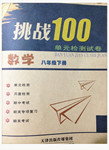题目内容
.________all his courage, he invites Celine to get off the train with him.
A.To gather B.Gathered C.Gathering D.Being gathered
C

 挑战100单元检测试卷系列答案
挑战100单元检测试卷系列答案Mr. Peter Johnson, aged twenty-three, battled for half an hour to escape from his trapped car yesterday when it landed upside down in three feet of water. Mr. Johnson took the only escape route — through the boot (行李箱).
Mr. Johnson’s car had finished up in a ditch at Romney Marsin Kent after skidding on ice and hitting a bank. “Fortunately, the water began to come in only slowly,” Mr. Johnson said. “I couldn’t force the doors open because they were jammed against the walls of the ditch and dared not open the windows because I knew water would come flooding in.”
Mr. Johnson, a sweet salesman of Sitting Home Kent, first tried to attract the attention of other motorists by sounding the horn and hammering on the roof and boot. Then he began his struggle to escape.
Later he said, “It was really a half penny that saved my life. It was the only coin I had in my pocket and I used it to unscrew the back seat to get into the boot. I hammered desperately with a hammer trying to make someone hear, but no help came.”
It took ten minutes to unscrew the seat, and a further five minutes to clear the sweet samples from the boot. Then Mr. Johnson found a wrench and began to work on the boot lock. Fifteen minutes passed by. “It was the only chance I had. Finally it gave, but as soon as I moved the boot lid, the water and mud poured in. I forced the lid down into the mud and scrambled clear as the car filled up.”
His hands and arms cut and bruised (擦伤), Mr. Johnson got to Beckett Farm nearby, where he was looked after by the farmer’s wife, Mrs. Lucy Bates. Huddled in a blanket, he said, “That thirty minutes seemed like hours.” Only the tips of the car wheels were visible, police said last night. The vehicle had sunk into two feet of mud at the bottom of the ditch.
1. Which of the following objects is the most important to Mr. Johnson?
|
A.The hammer. |
B.The coin. |
|
C.The screw. |
D.The horn. |
2.Which statement is true according to the passage?
|
A.Mr. Johnson’s car stood on its boot as it fell down. |
|
B.Mr. Johnson could not escape from the door because it was full of sweet jam. |
|
C.Mr. Johnson’s car accident was partly due to the slippery road. |
|
D.Mr. Johnson struggled in the pouring mud as he unscrewed the back seat. |
3.“Finally it gave” (Paragraph 5) means that _________.
|
A.Luckily the door was torn away in the end |
|
B.At last the wrench went broken |
|
C.The lock came open after all his efforts |
|
D.The chance was lost at the last minute |
4.It may be inferred from the passage that _________.
|
A.the ditch was along a quiet country road |
|
B.the accident happened on a clear warm day |
|
C.the police helped Mr. Johnson get out of the ditch |
|
D.Mr. Johnson had a tender wife and was well attended |
5.What is the best title for this newspaper article?
|
A.The Story of Mr. Johnson, A Sweet Salesman |
|
B.Car Boot Can Serve As The Best Escape Route |
|
C.Driver Escapes Through Car Boot |
|
D.The Driver Survived A Terrible Car Accident |